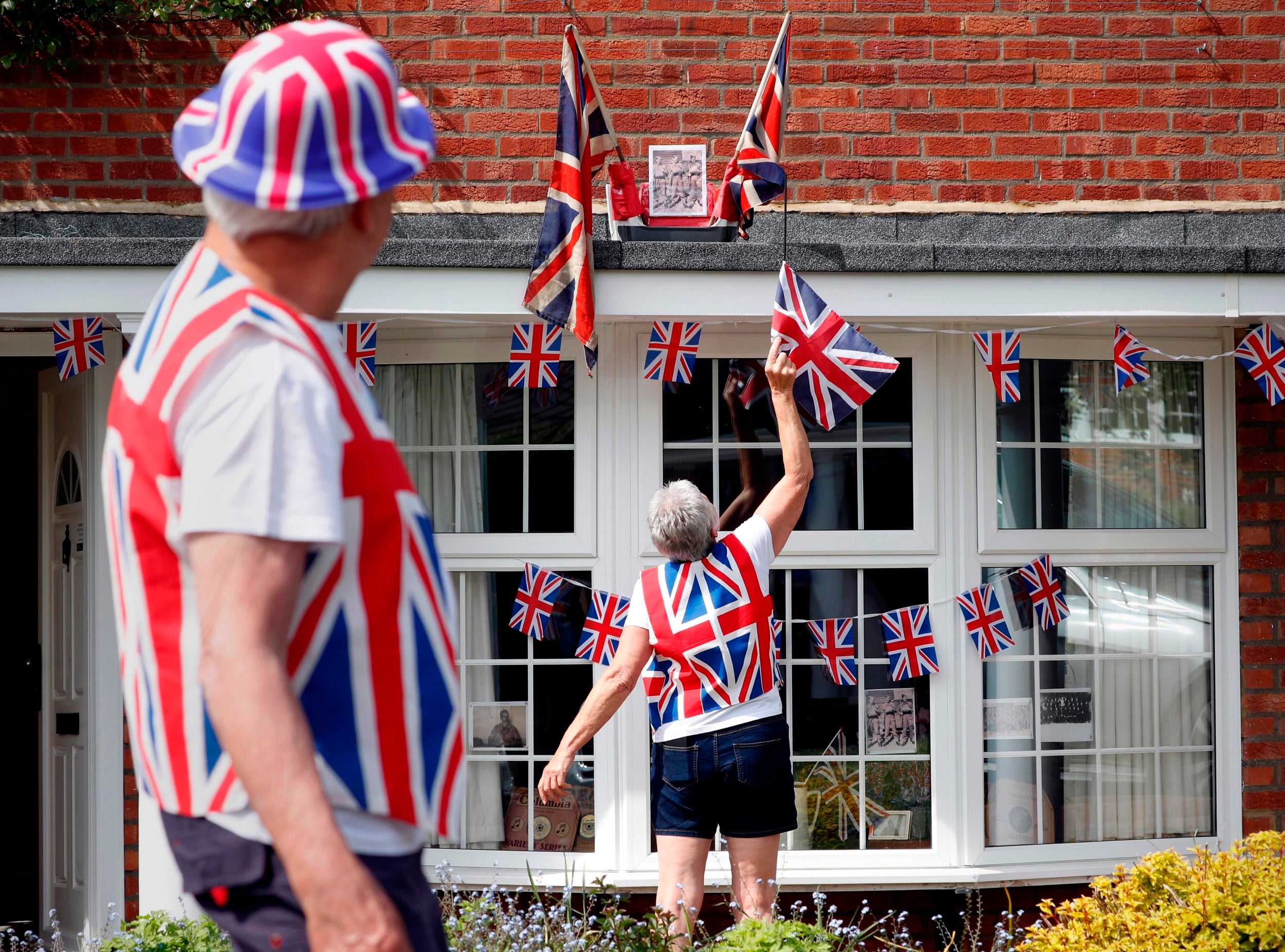Sorry Remainers, you can’t just redefine British patriotism to suit your own ends
The patriotism we know was engineered by a ruling class who built an empire and structured our society around it. It’s no good trying to oppose nationalism by claiming patriotism is about tolerance, politeness and fair play, writes Michael Chessum

The world wars are a handy frame of reference for the pro-Brexit right, what with their talk of Britain standing alone, lots of flags and bunting, and sticking it to the Germans. In celebrating VE day, Nigel Farage and Boris Johnson – who are today allies of an extreme right American president, and have gone out of their way to praise right-wing populist leaders such as Viktor Orban – get to make bellicose nationalist speeches and be seen on the same side as the fight against fascism. If you’re a government strategist directly imported from Vote Leave, what’s not to love?
As the Brexit culture war rages, the tapestry of flag-waving rituals – VE Day, 100 years since the end of World War One, the last night of the Proms, Remembrance events, and almost anything involving the Royal Family – has become more extreme and politicised.
The entire point of these events, from the view of Vote Leave, is that they can be used to push a divisive political agenda under the guise of a moment of national unity. The price of pointing this out is being torn to shreds in the tabloid press, and so the left faces a quandary about how to deal with the situation.
Keir Starmer has an answer to this dilemma, which he has been repeating throughout the past two weeks. “In the Labour party we should be proud of being patriotic,” he said, warning the labour movement not to “shy away” from linking its mission to “improve the country we live in” to a love of Britain. Like many, many Labour politicians before him, he is seeking to actively embrace and redefine patriotism as something progressive, rather than opposing or sidestepping it.
The problem with this strategy is that, like most attempts to redefine your opponents’ framing of politics, it is prone to being either superficial or actively counterproductive.
The tangled, messy development of Labour’s Brexit policy offers some lessons in how not to engage with the modern project of British nationalism. Following the EU referendum, the electoral cost of opposing Brexit became prohibitive. So many in Labour, and much of its leadership, moved to a position of trying to turn it into a potentially progressive moment. In practice, however, rhetorical attempts to redefine leaving the EU went alongside some pretty orthodox Brexit politics, with Labour (backed at the time by Starmer himself) abandoning free movement and shifting to the right on immigration.
It was, in abstract, absolutely possible to redefine Brexit as progressive. But the problem was that Brexit was not an abstract thing. It was a real political project in the real world, driven by the Tory right, whose main purpose was to blame foreigners for a fall in living standards, raise the borders and further deregulate the economy. When Labour tried to use and redefine the terms of debate set by the right, all it did was get sucked into their agenda.
If Brexit is a concept impossible to detach from its context, British patriotism has even deeper ideological roots. There are of course attractive things attached to it – belonging, a sense of community, and pride in collective endeavour. But to the extent that these things are wrapped in a Union Jack, they are defined by hundreds of years of history in which Britain murdered or enslaved a huge proportion of the world’s population, got rich off the spoils and then celebrated this fact.
The patriotism we experience on a daily basis was engineered by a ruling class who built an empire and structured an entire society around doing it. It’s no good trying to oppose nationalism by saying “but to me patriotism is about tolerance and politeness and fair play”.
If Labour was serious about redefining patriotism, or indeed Brexit, it would have to go to war with the content. This would mean loudly raising Britain’s imperial crimes, society’s racism and the false idea of us all being in the same boat, at the same time as raising the flag. And this would destroy the point of the exercise; voters who like waving flags tend to be quite attached to a traditional narrative of Britain’s place in the world, just as voters who like Brexit tend to be quite attached to harsh border controls.
As the nationalist right grows across the world, the waving of flags is going to become more and more aggressive. If the left in Britain is going to engage in any attempt to redefine patriotism, it needs to be willing to make itself very unpopular indeed among some communities. Otherwise all we are doing is pandering to the right and strengthening them in the process.
Join our commenting forum
Join thought-provoking conversations, follow other Independent readers and see their replies
Comments